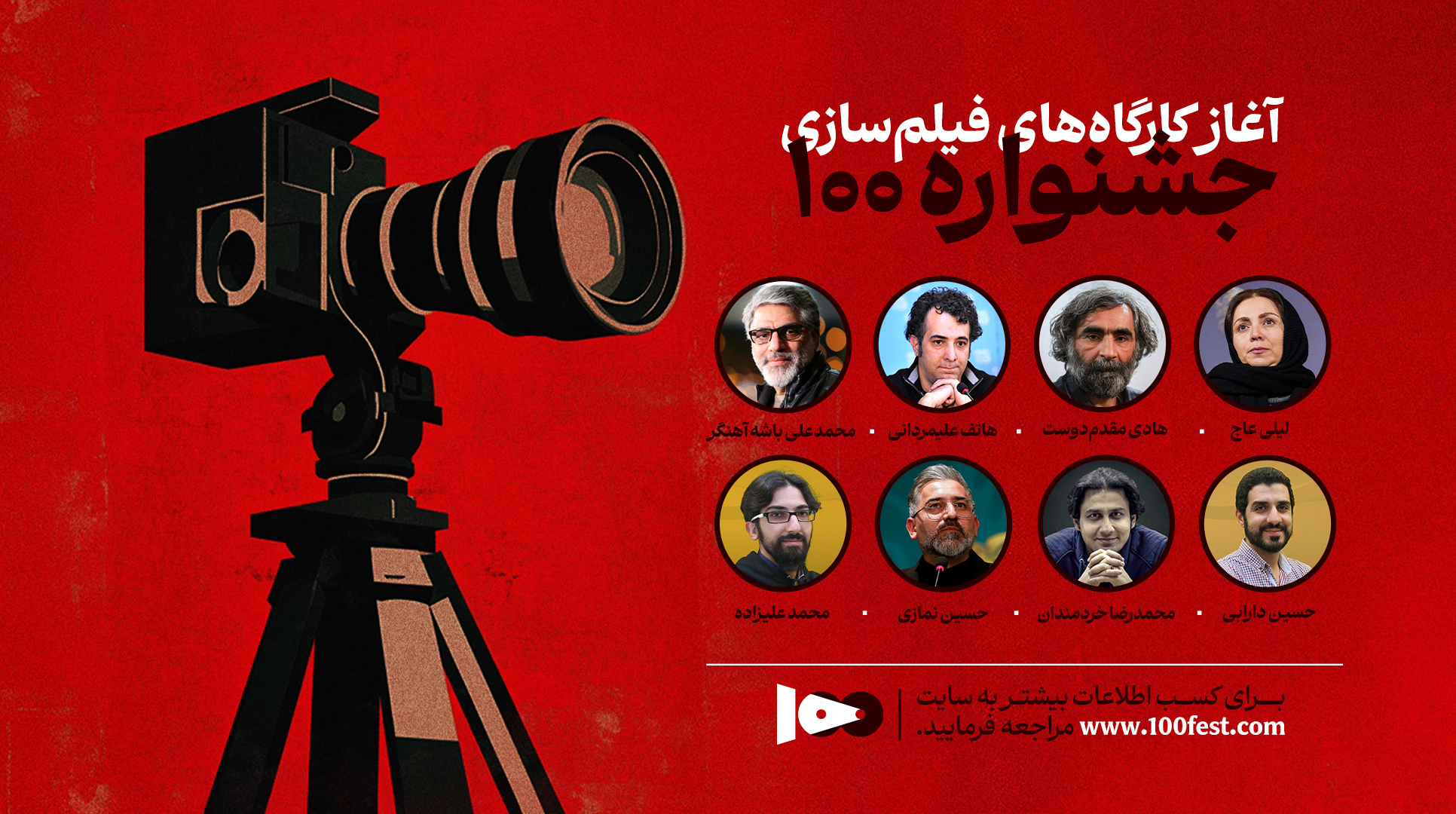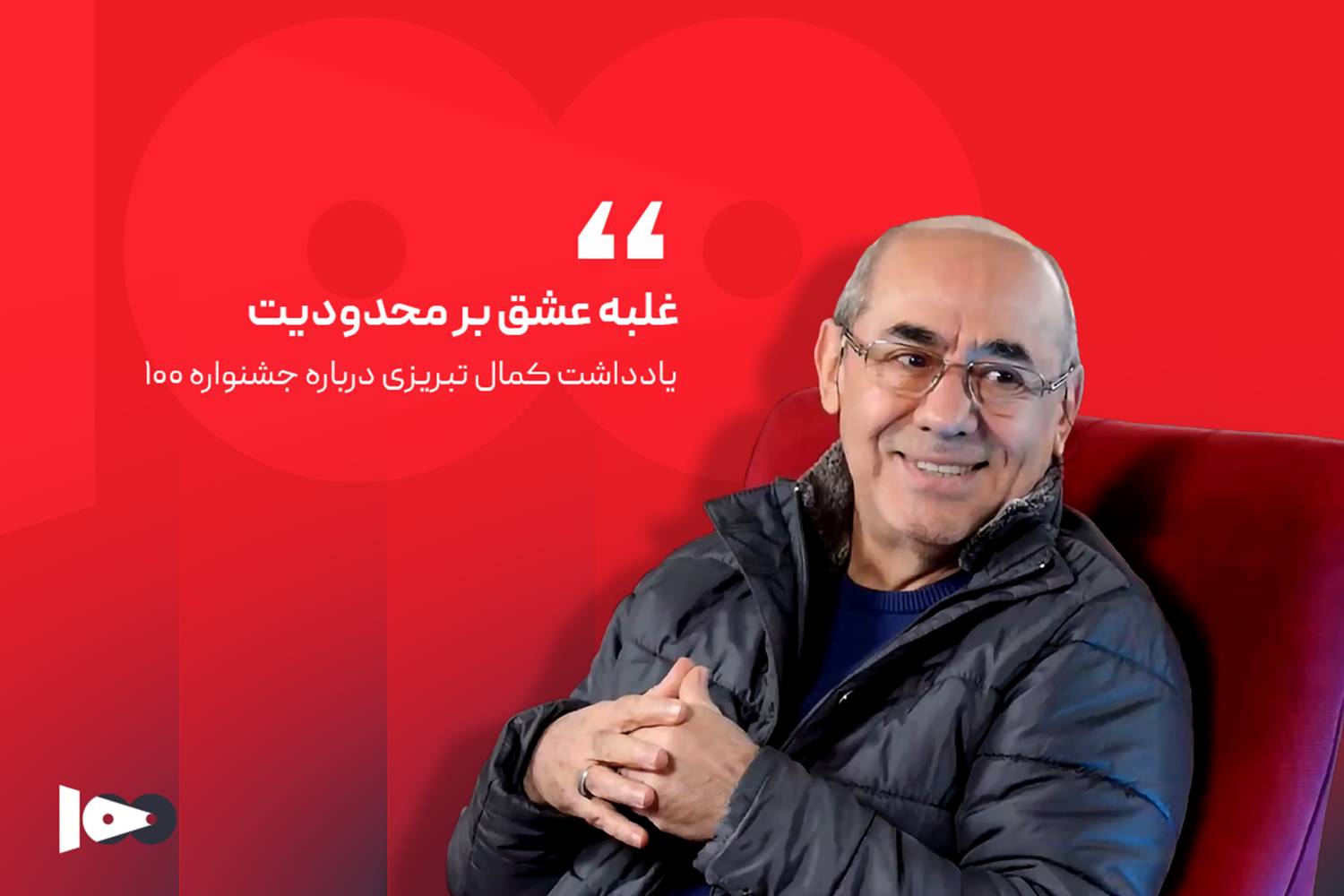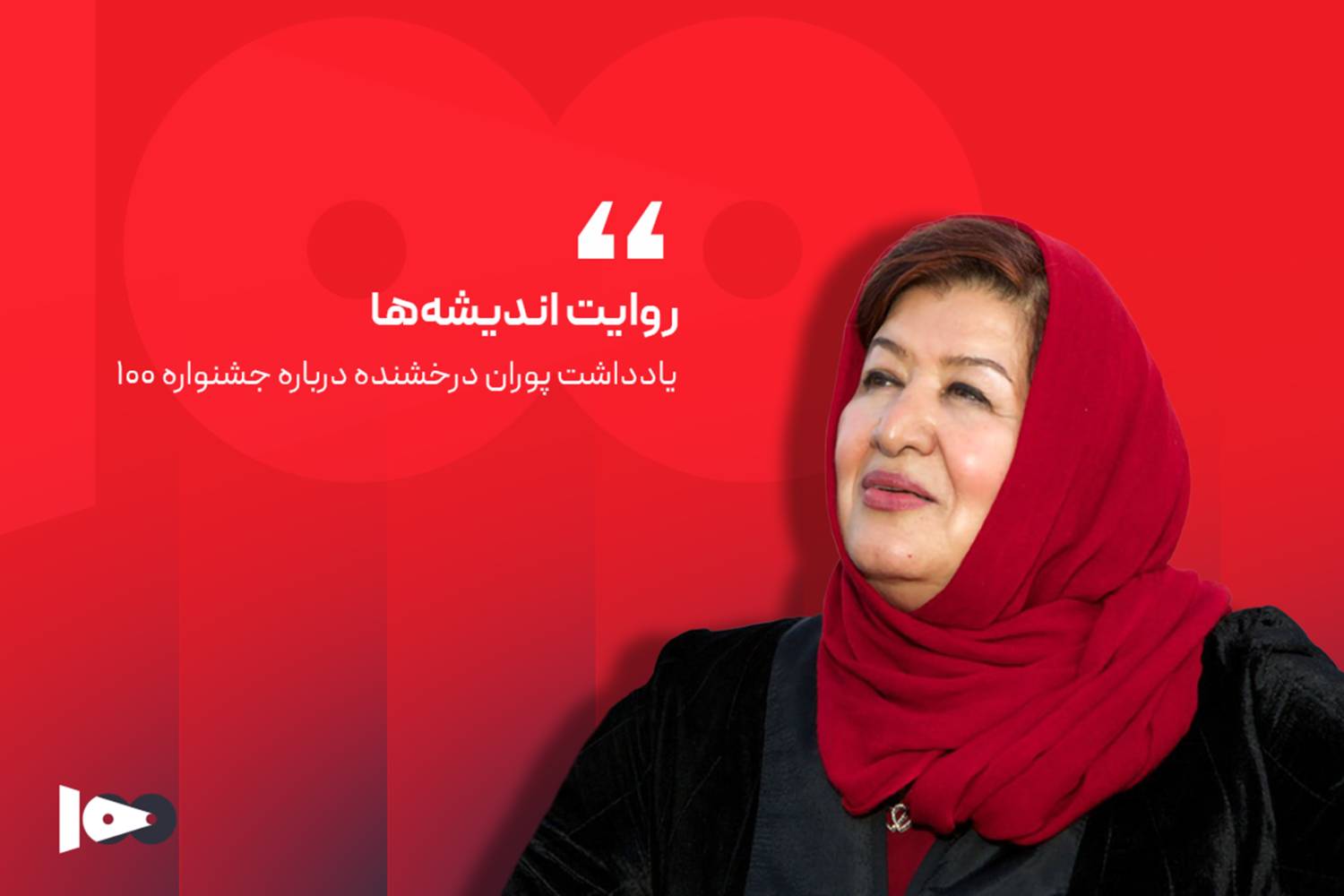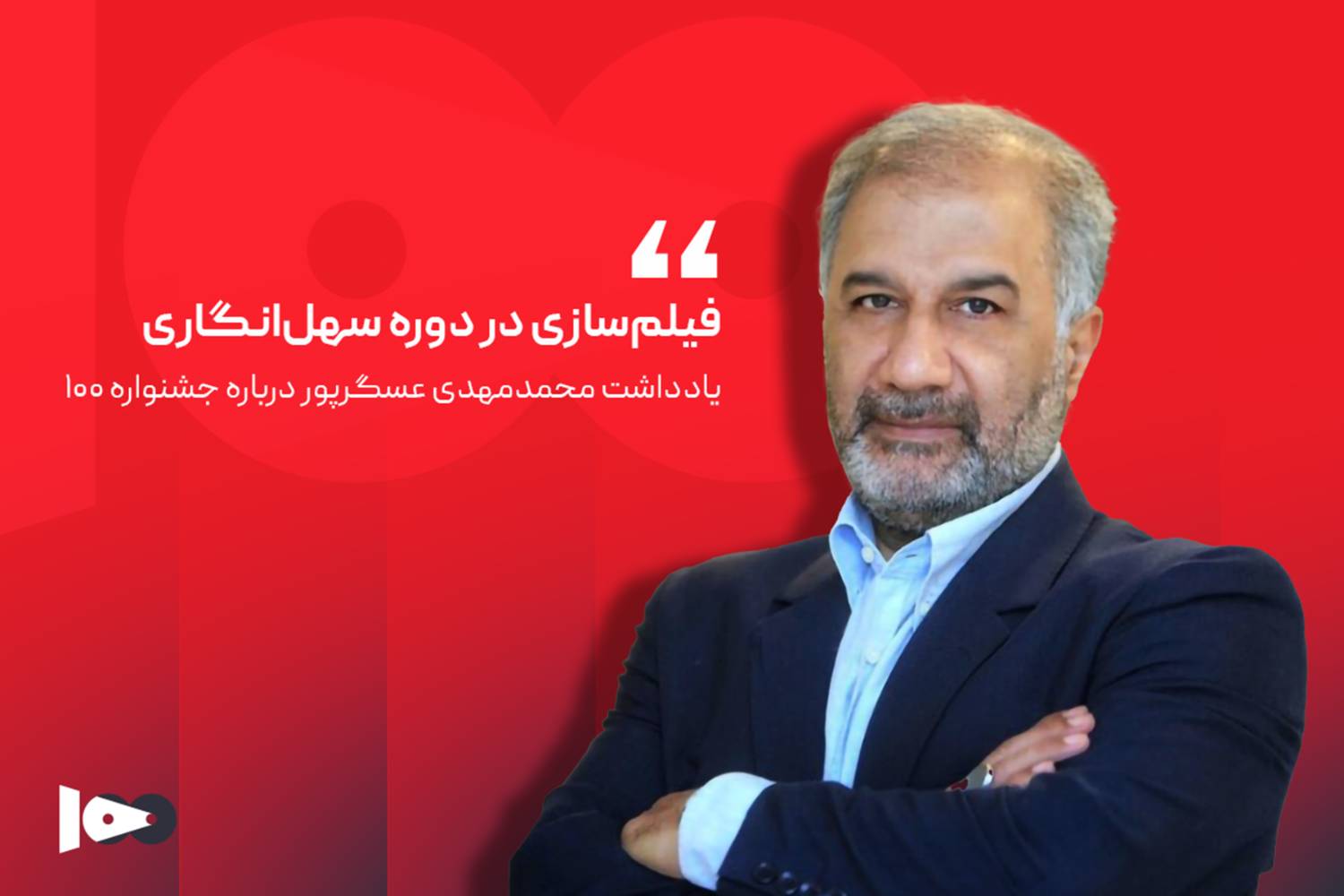The Idea: The Beating Heart of a Short Film
News / Edition 14 / The Idea: The Beating Heart of a Short Film
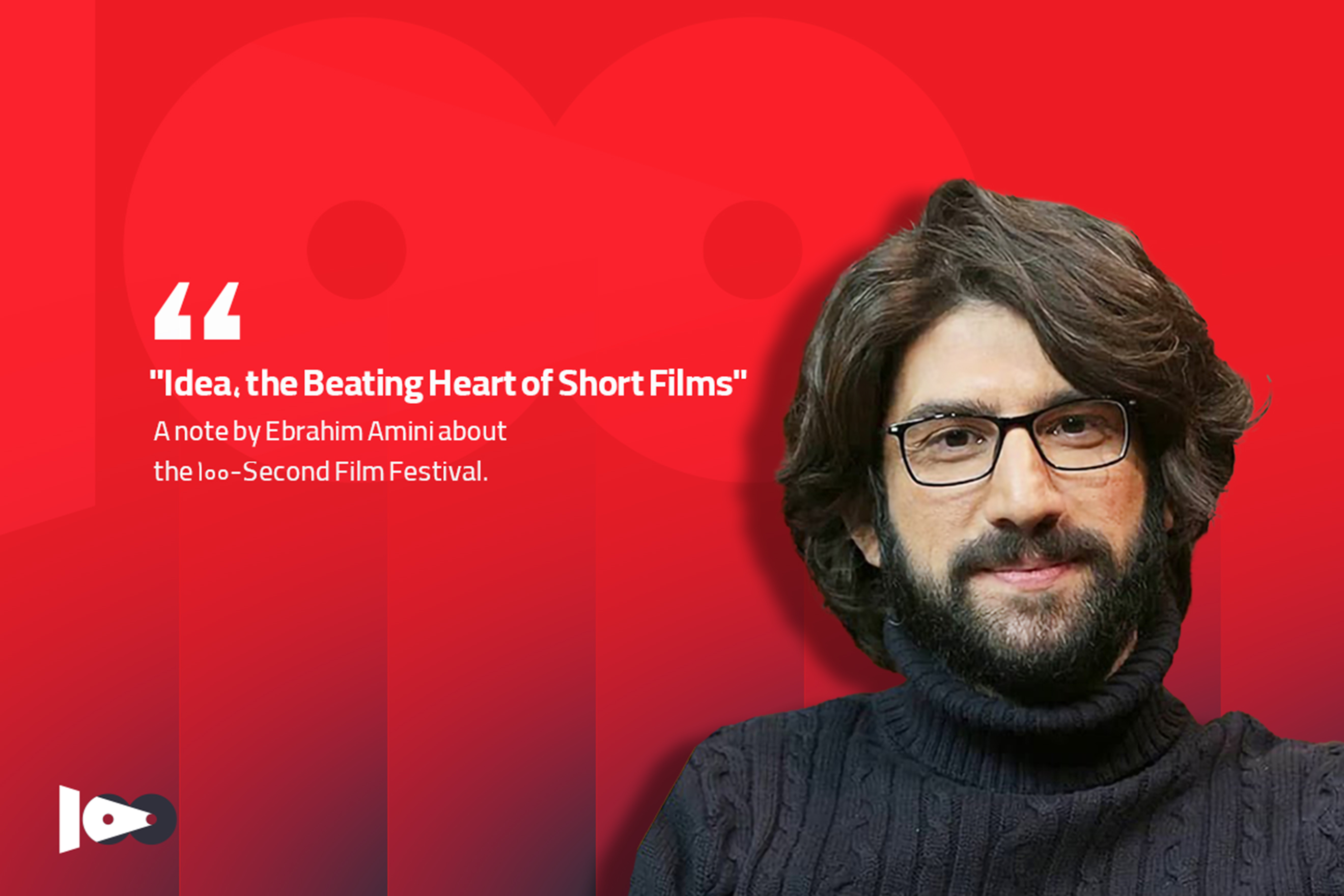
Ebrahim Amini on the 100-Second Film Festival
Ebrahim Amini, a member of the National Selection Committee of the 13th 100-Second Film Festival, spoke about conveying messages through short films:
“A message does not become overly explicit if it is embedded within a compelling and dramatic idea. In fact, a message only feels exaggerated and slogan-like when there is no strong dramatic idea or when it is too weak. In screenwriting literature, there is a concept known as the ‘controlling idea’.”
The Importance of Short Films
Ebrahim Amini, screenwriter and member of the National Selection Committee of the 13th 100-Second Film Festival, explained why short films are important:
Short films are an independent medium from feature films. In today’s world, which is fast-paced and ever-changing, we often find ourselves as audiences of short films.
The first reason for this is the inherent importance of short films, as they are widely utilized in today’s world and play a crucial role in engaging audiences.
However, in Iranian cinema, short films serve another purpose: they introduce promising filmmakers to the feature film industry. Those who are passionate about cinema often find their way into the industry through short films.
And regarding the level of works submitted to the 13th 100-Second Film Festival, he said:
“To be honest, the number of truly outstanding works was very few. However, this also applies to the weaker works. Among the large number of submissions, only about five to ten films had strong ideas that stood out. The majority of the works were of an average level, and their creators need more practice, perseverance, and education to improve their future projects.”
Regarding the importance of the 100-Second Film Festival, he stated:
“I have always followed the news about the 100-Second Film Festival as an audience member, and the 13th edition was the first time I collaborated with it. The 100-Second Film Festival, and perhaps all festivals dedicated to short films, provide a great opportunity for those practicing filmmaking. This happens in two ways: for some, short films are their ultimate goal, while for others, they serve as a path toward another destination. Therefore, those interested in filmmaking can greatly benefit from such festivals.”
The screenwriter continued:
“Additionally, investment and support from various institutions for young filmmakers, while maintaining the private sector, is a positive development for those who want to better navigate their growth and find their path.”
Amini explained the challenges of making a 100-second film:
“The main difficulty of a 100-second film lies in the idea and screenplay. Executing an idea and turning it into a screenplay is challenging, and a 100-second film is no exception. However, what makes a work truly difficult and distinguishes one film from another is the idea. In fact, beyond the screenplay, what ultimately saves a film is its idea—that initial concept that, when it comes to the creator’s mind, can be described in just a few words to others, triggering an emotional response. By observing these reactions, one can determine whether the film is worth making or not.”
Referring to the possibility that one of the notable filmmakers of the future may present their first film at this year’s 100-Second Film Festival, he stated:
“Perhaps one or more of these filmmakers will become recognized and influential in the future, which is promising and encouraging. As someone with a little experience, my advice to aspiring filmmakers is not to get discouraged. The path of filmmaking may not be as simple as it appears, and in reality, the natural course of artistic work is inherently challenging.”
The screenwriter noted:
“Meanwhile, filmmaking under the current conditions in Iranian society is another issue that makes the process even more difficult. One challenge is the creation of art, and the other is bringing the project to completion. Those who persevered and did not become discouraged have succeeded.”
Regarding the priority of form over content or vice versa in short films, he said:
“The reality is that form and content are interconnected and inseparable. If we separate them, it is only to analyze them in a theoretical or experimental context. However, what truly matters is the idea, which inherently contains both content and a vision for form.”
Referring to his experience at the 13th festival, he continued:
“Some of the works we reviewed had extraordinary ideas at their level, which the filmmakers had successfully developed into screenplays with proper execution. In fact, what distinguishes and defines these films are their ideas.”
The screenwriter continued by stating that most of his experience has been in feature films and that he has written very few short films:
“If there are multiple paths to entering feature filmmaking, such as short films, documentaries, theater, etc., my background has been in theater. I studied theater during my university years and worked mostly in that field. In fact, I transitioned from theater to feature films. Of course, I have had one or two experiences in writing screenplays or casting for short films, and it is worth mentioning that I have always been an audience of short films and have enjoyed them.”
Amini spoke about the popularity of short films, stating:
“In our time, compared to previous eras, short films have gained more value because life has become faster-paced, and we have more time to watch short films than feature-length works. Another reason for this is that we feel a short film, within its limited duration, provides us with an experience and an understanding of life, along with beauty and enjoyment. As a result, good short films offer a pleasant experience.”
In another part of his interview, he emphasized the distribution of short films on platforms, stating:
“Any platform that can showcase these films and bring them to the audience is highly beneficial. I have even seen short films being played in metro stations, which allows people to make good use of their time. It should be noted that we must utilize all available resources for the exhibition of short films.”
As a member of the National Selection Committee of the 13th 100-Second Film Festival, he spoke about conveying messages through short films, stating:
“If a message is presented within an engaging and dramatic idea, it does not feel exaggerated. In fact, a message only becomes overly explicit and feels like a slogan when there is no strong dramatic idea or when the idea is too weak. In screenwriting literature, there is a concept known as the ‘controlling idea’.”
Amini concluded by emphasizing:
“The dramatic idea and the controlling idea must be qualitatively and structurally aligned. We perceive a film as overly didactic when the controlling idea is larger or stronger than the dramatic idea, creating an imbalance. Likewise, sometimes a film may have an excellent dramatic idea, yet lack a clear controlling idea. When these two elements are developed together and grow in harmony, that is when we can say we are looking at a truly well-crafted film.”


